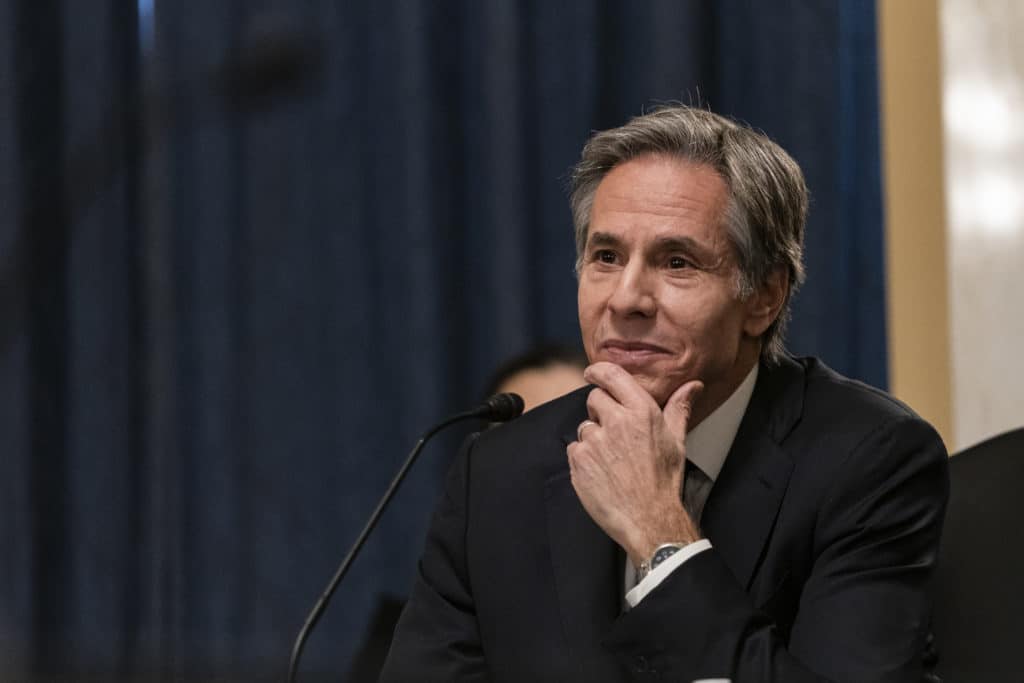US to finally allow self-ID for trans folk and ‘X’ gender markers in massive passport shake-up

(Envato Elements)
US passports will now have an “X” option and enable trans Americans to self-identify on certain federal documents, the State Department said Wednesday (30 June).
The State Department, which issues passports, announced a pathway for trans, non-binary and intersex Americans to update gender-markers on their identification documents.
Trans Americans will be able to self-identify when it comes to applying for and updating both passports and Consular Reports of Birth Abroad in what amounts to the biggest shakeup in federal identification laws since 2010.
Today we are taking important steps toward ensuring the fair treatment of LGBTQI+ U.S. citizens. https://t.co/tfNnTUQmsp
— Secretary Antony Blinken (@SecBlinken) June 30, 2021
Antony Blinken is ‘committed’ to LGBT+ folk following self-ID passport shake-up
Trans passport-holders have long face an uphill climb to update their gender markers since president Barack Obama paved the way to do so. Department forms only offered “M” and “F” options and required applicants to provide a form of medical certification.
This need for certification typically required applicants to visit a physician and obtain a formal letter on the letterhead – for those living in rural areas, without health insurance or who are not open to their providers, this proved a huge problem.
But not for much longer, secretary of state Antony Blinken said in a press release.
The department will be “immediately […] updating our procedures to allow applicants to self-select their gender as ‘M’ or ‘F’ and will no longer require medical certification if an applicant’s self-selected gender does not match the gender on their other citizenship or identity documents”.
“The department has begun moving towards adding a gender marker for non-binary, intersex, and gender non-conforming persons applying for a passport or CRBA,” he added.
Blinken sought to stress that updating the department’s systems will “take time” and officials are “evaluating” the best route towards this.
In providing a third gender option and self-ID, the Biden administration will squash the challenges so many trans, non-binary and intersex passport-holders face when travelling while their gender markers do not accurately reflect who they are.
Blinken acknowledged this, noting that the department will work with interagency partners to “ensure as smooth a travel experience as possible for the passport holder”.

Antony Blinken speaks during his confirmation hearing to be Secretary of State before the US Senate Foreign Relations Committee on 19 January, 2021, in Washington, DC. (Getty/ Alex Edelman-Pool)
“In line with the administration’s commitment to re-engage with allies and partners, the department is taking these steps after considerable consultation with like-minded governments who have undertaken similar changes,” he continued.
“We also value our continued engagement with the LGBT+ community, which will inform our approach and positions moving forward.
“With this action, I express our enduring commitment to the LGBT+ community today and moving forward.”
The move makes good on a campaign promise from president Joe Biden and is the upshot of months of discussions between White House officials and LGBT+ advocacy groups. It also comes after a federal judge ordered the State Department to issue a gender-neutral passport to intersex Colorado navy veteran Dana Alix Zzyym in 2020.
Despite the court order, Zzyym had yet to receive the passport.
ACLU bosses said earlier this year that Biden remains “committed” to rolling out a gender-neutral option across all federal identification documents, such as social security cards and residence permits.
Activists argue that without such an option or self-ID, inaccurate identification can bar people from travelling, applying for jobs and even accessing the coronavirus vaccine.
The State Department’s policy shift will no doubt be a relief to the 42 per cent of transgender people who are eligible to vote in 45 American states that have inaccurate identification documents, according to a report from Williams Institute at UCLA School of Law.
But while federal ID documents are steadily being smoothened out by administration officials, at a state level, the US remains a patchwork of wildly varying policies.
Processes to change a driver’s licence or birth certificate, for example, can range from allowing trans people to update their documents or not at all, monitoring group National Center for Transgender Equality shows.
Even then, some activists, countries and international agencies, such as the United Nations, question whether there’s even a need for a gender marker on identity documents at all.

